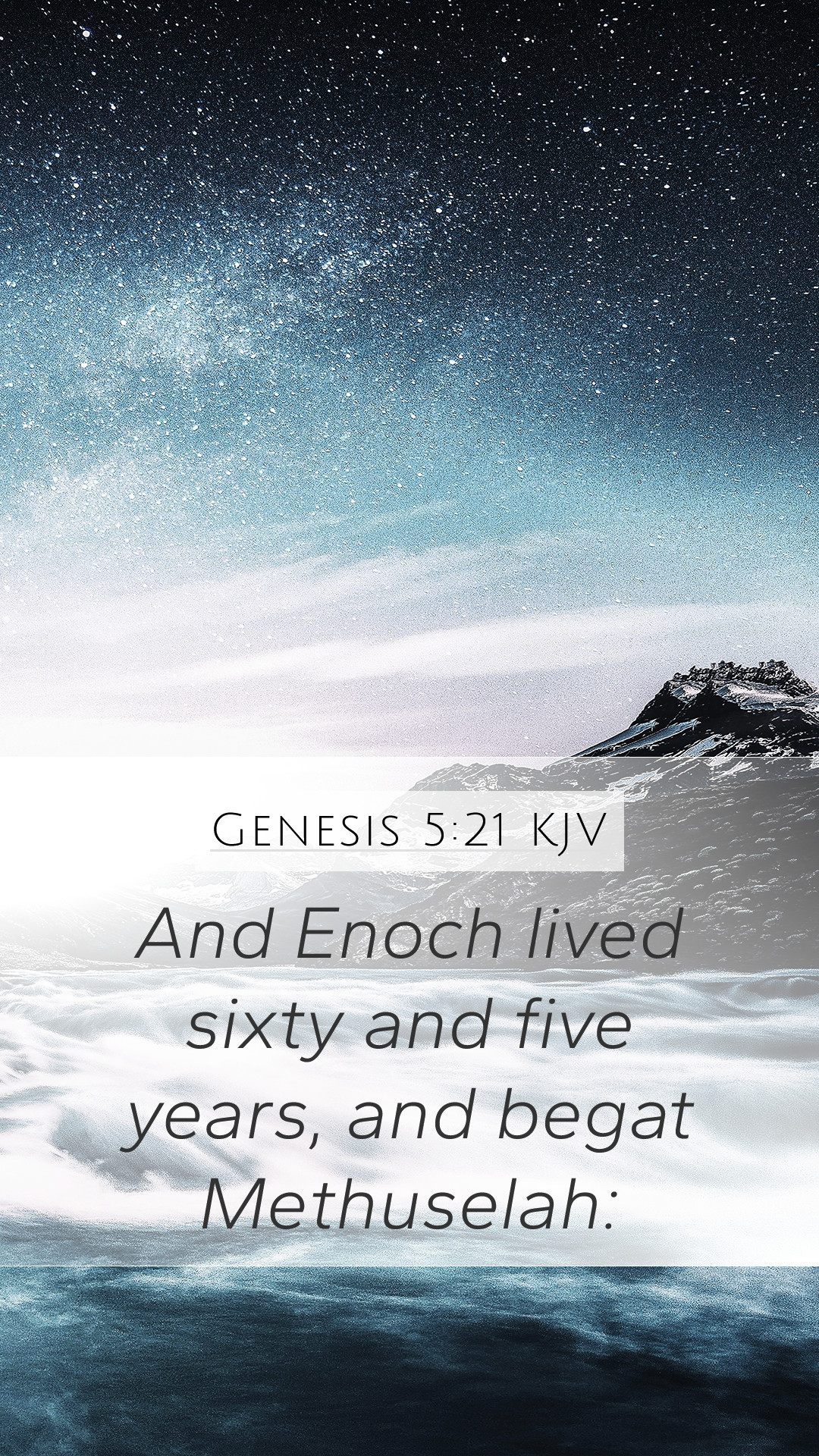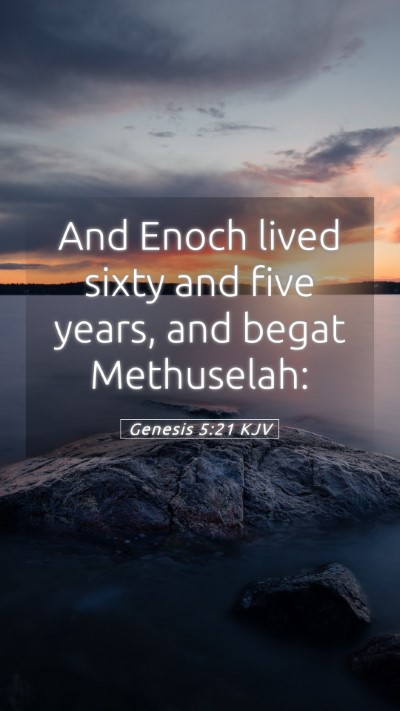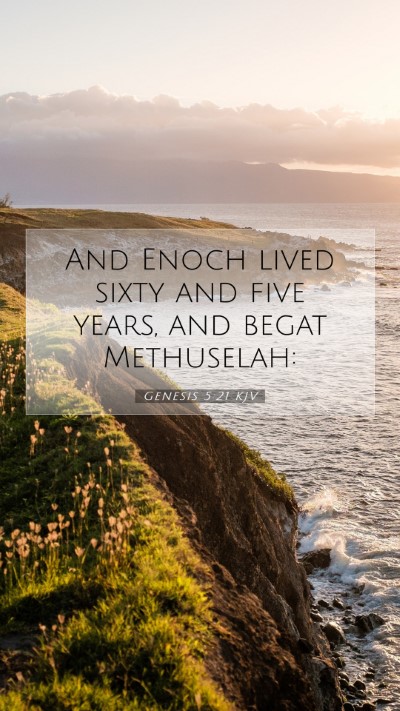Understanding Genesis 5:21
Genesis 5:21 states: "And Enoch lived sixty and five years, and begat Methuselah:" This verse is a brief account from the genealogical record found in the Book of Genesis, providing essential information about Enoch, the seventh generation from Adam, and his son Methuselah.
Bible Verse Meaning
The meaning of Bible verses can often be enriched through consultation of various commentaries. Here, we will explore insights from public domain commentaries including those by Matthew Henry, Albert Barnes, and Adam Clarke.
Commentary Insights
-
Matthew Henry's Commentary
Matthew Henry emphasizes the significance of Enoch's life. He notes that Enoch was a man who walked with God, showcasing his deep relationship with the divine. His fatherhood, particularly to Methuselah, is highlighted as a pivotal moment as Methuselah would go on to become the longest-lived human being according to the Bible. This reflects the broader themes of legacy and the impact of one’s walk with God on future generations.
-
Albert Barnes' Notes
Albert Barnes points out that Enoch's age at the birth of Methuselah indicates how the lifespans in early generations were significantly longer than they are today. This commentary provides a glimpse into the genealogical structure of Genesis and considers the theological implications of Enoch's life, suggesting that Methuselah's birth could be a sign of anticipation or judgment due to the impending flood.
-
Adam Clarke's Commentary
Adam Clarke elaborates on Enoch's character, stating that Enoch is noted for his piety and prophetic gifts. He links Enoch's short life, which is scantily recorded compared to others who lived much longer, to his righteousness and relationship with God, suggesting that Enoch was rewarded with a unique experience of being taken up by God without experiencing death, which is referenced in the New Testament.
Key Themes and Insights
From the combined interpretation of various commentaries, several key themes emerge:
- The Legacy of Righteousness: Enoch’s life serves as an example of piety in contrast with the sinfulness surrounding him.
- Significance of Methuselah: Methuselah's birth signifies God’s mercy and the prolongation of grace before the Flood.
- Walking with God: Enoch’s relationship with God suggests a model for believers, emphasizing faithfulness and spiritual communion.
Bible Study Insights
This verse can serve as a foundation for Bible study groups focusing on the themes of legacy, obedience to God, and the importance of faith. Engaging with these timeless truths can enhance one’s understanding of how to apply Biblical teachings to everyday life.
Related Cross References
- Hebrews 11:5 - Illustrates Enoch’s faith and commendation by God.
- Jude 1:14 - References Enoch's prophetic insight.
- Genesis 6:5 - Contextualizes the wicked state of humanity leading up to the flood.
Application of Genesis 5:21
Understanding Scripture is vital for applying biblical teachings in daily life. The lessons from Enoch’s story—walking in faith, the significance of family, and the anticipation of divine judgment—remind believers of the importance of maintaining a holy walk with God amidst a corrupt world.
Further Exploration
For those looking to dive deeper into the meaning of Bible verses and the historical context, it is beneficial to use various bible study tools and bible study resources. Engaging with online Bible study courses and lessons that explore the genealogies of the Bible can also provide greater insight into these passages.


